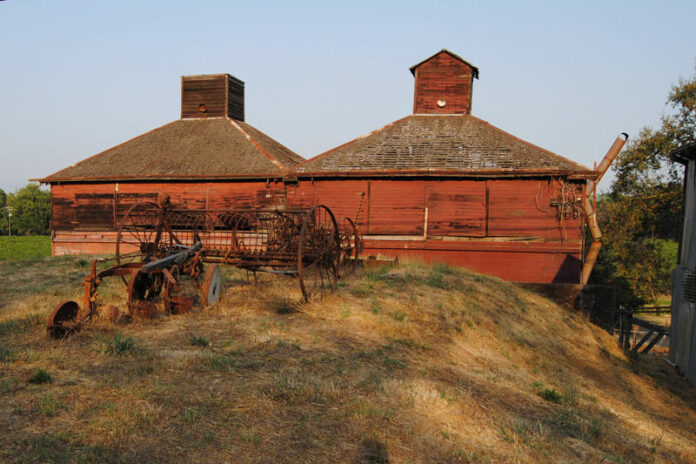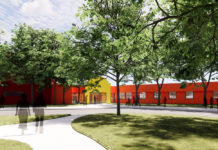One of Sonoma County’s most highly acclaimed vintners has found his vision for the future at odds with citizens concerns over the impacts of commercial vineyards and their events.
David Ramey said that he “purchased the old pumpkin farm, which attracted substantial visitors and traffic, with the vision of building our family winery for coming generations. We’ve been leasing our two wineries in Healdsburg but do not own them, which involves a measure of uncertainty.”
Ramey was granted a conditional use permit by the County Board of Zoning Adjustments for development on his Westside Farms’ property on Westside Road.
The permit, issued Sept. 21, was appealed by environmental groups and citizens on Oct. 2. Appellants are calling upon the board of supervisors to “address the cumulative impacts from the commercialization of agriculture land, and define protective standards that preserve what brings tourists to Sonoma County in the first place, our rural character and small town charm.”
Craig Enyart, of Maacama Watershed Alliance, challenged the county supervisors in the appellants’ Oct. 5 press release announcing the appeal. “Enough is enough — it’s past time for the supervisors to provide staff, planning commissioners, applicants and taxpayers the guidance they’ve repeatedly requested, addressing general plan requirements and the cumulative impact issues raised during the 2015 Winery Working Group process.”
(In 2015, Sonoma County appointed 21 locals from among the wine industry, environmental groups and rural residents to a working group tasked with identifying the growing pains of the wine industry in Sonoma County and how best to mitigate those problems.)
Westside Farms’ conditional use permit involved numerous studies and mitigation to gain approval for the project. “Our proposal is in accord with the county general plan and zoning with the principal use of the property being agriculture and wine processing, without removing a single grapevine from the existing 42-acre vineyard,” said Ramey. “The winery will be cut into the hillside so as not to impact the view corridor of Westside Road.”
Ramey kept the name of the farm when he purchased the property. “We’ve committed substantial sums to rehabilitate the picturesque but decaying hop kiln and baling barn, saving a portion of their inner workings so visitors can appreciate their historic use,” said Ramey.
Ramey added, “We’ve met all county planning requirements and are attuned to neighborhood issues, as our daughter and son-in-law live on the property at Westside Farms, while Carla and I live further up Westside Road. Every one of our immediate neighbors supports our project.”
The project would include a new two-story winery building with an annual production of 60,000 cases, a new wine cave for long-term aging of wine in barrels and conversion of the historic hop kiln building to both a public and a reserve tasting room.
There would be 22 agricultural promotional events per year. The project would include new parking areas, and they plan to redo the driveways to ensure more visibility and safety. They would use on-site wells as well as a wastewater disposal system that allows for vineyard irrigation.
The appeal was presented by Healdsburg Citizens for Sustainable Solutions, Maacama Watershed Alliance, Forest Unlimited, Sonoma Coast Rural Preservation, Todd Everett and Warren Watkins.
The appellants listed four concerns in the appeal including that the project “Generates significant employee, public and truck traffic in an area with inadequate sight lines.” The second complaint was that it was a “large scale project, with tasting rooms on both sides of the road, situated within an approximate 1,000 foot radius of three existing tasting rooms (and) is detrimental to the rural character of the area.”
The third concern was that the “disproportionate focus on hospitality and promotional uses is inconsistent with the Williamson Act contract and the intent of the General Plan to preserve agriculture and rural character.”
(The California Department of Conservation says, ”The California Land Conservation Act of 1965 — commonly referred to as the Williamson Act — enables local governments to enter into contracts with private landowners for the purpose of restricting specific parcels of land to agricultural or related open space use.”)
The last concern listed in the appeal was “the overwhelming concentration of existing wineries on Westside Road and other similar county roadways is too great of a safety and countywide issue for the BOS to ignore.”
Traci Tesconi, BZA Project Planner for the Ramey project explained, “The Environmental Impact Report (EIR) is the highest level of environmental document.” The California Environmental Quality Act, or CEQA, “requires state and local agencies to identify the significant environmental impacts of their actions and to avoid or mitigate those impacts, if feasible.” Under CEQA, an EIR “identifies and examines the likely environmental effects of the continuing operations of an existing facility or those of a proposed project, and proposes measures to avoid, mitigate, or offset them.”
“Next is the mitigated negative declaration and that’s what the Ramey project has,” said Tesconi. “It basically outlines all the issues, but then also has all of the mitigation measures that are required to reduce any potentially significant environmental impact to the level of less than significant.”
“That’s what staff reviews,” said Tesconi. “It’s also what the Board of Zoning Adjustment reviews. So staff did that analysis and the Board of Zoning Adjustment agreed that with the 40 acres of vineyard on the property, the amount of events that they were proposing was consistent with (county) general plan policies. It was also consistent with the Williamson Act under our current uniform rule.”
“We have the studies to back up the determination that Westside Road is able to handle the amount of traffic generated by the project.” said Tesconi. “The site is able to handle the amount of parking that’s needed based on visitor and truck traffic. That was backed up by the studies that were done and also reviewed by the Department of Public Works, on the traffic studies as well as the site distance analysis that was done.”
Tesconi explained that “All of those items were cleared by the Department of Public Works, which is our traffic engineer that we rely on to review these studies and confirm that they’re not significant impacts.”
Tesconi added, “He (Ramey) did all of the studies that hit all of those points in the California Environmental Quality Act that needed to be evaluated.”
Although it would appear that the staff report addresses the appellants’ concerns, the appellants claim the decision is not that simple. Enyart said he feels as though the county is not following its own guidelines with the Westside Farms conditional use permit. “There’s an overconcentration of wineries on that stretch of road,” said Enyart.
“When is the county going to address the very thing that they’ve promised to address, which is an overconcentration of wineries in certain areas of Sonoma County?” asked Enyart. “When are we going to stop looking at individual winery applications and approving them one by one, without looking at the whole picture, the whole neighborhood, the whole road and all of the impacts; all of the unmitigated impacts and all the cumulative impacts? When is that going to be the question?”
Pamela Davis, a member of the BZA representing the Fifth Supervisorial District, further explained, “Ramey’s come before the Board of Zoning Adjustment and we had a split vote on that and there’s an appeal to the Board of Supervisors. The Board of Supervisors are going to do what we did at the Board of Zoning Adjustments. They’re going to take a look at it and they’re going to weigh the pros and cons. They’re going to evaluate the facts and make their determination on that.”
“This is not traditional agriculture,” explained Davis. “Wineries are saying that to be able to make their bottom line they have to have big parties, so is that appropriate? That’s the discussion that’s happening. That’s where we need to take that conversation.”
“We need to find some balance,” said Davis. “We’re going to have business in Sonoma County. We’re going to have wineries and tasting rooms in Sonoma County, so how do we balance the need for the peace and well-being of the community with business?”
“My inclination generally is that some events are okay, but I do think it needs to be with moderation,” stated Davis. “I don’t think it should be a free-for-all.”
To residents who take an interest in projects like this coming before the county, Davis stressed that it’s “really important that they read the documents so that they understand what they actually say and not just make assumptions based on what any particular group is saying. I think that’s true with any case, whether local BZA or whether it’s state or national politics. It’s really good for people to understand what the facts are.”
Davis explained that the comprehensive staff report and all the supporting documents is a great place to start. She mentioned that staff was available to answer questions as well. “At that point, submitting written comments to all of the (county) supervisors is a good way to participate in the process. Residents can also contact their supervisor directly.”
Davis added that submitting written comments early gives the supervisor time to read them. “If you submit your comment the day of a hearing, it doesn’t give the supervisors time to read that.”
The County Board of Supervisors will review the Westside Farms conditional use permit appeal after the new year. A decision is not expected until April of 2018. Supervisors cannot discuss the details of the appeal as it is judicial in nature.
62.3
F
Healdsburg
May 28, 2025










